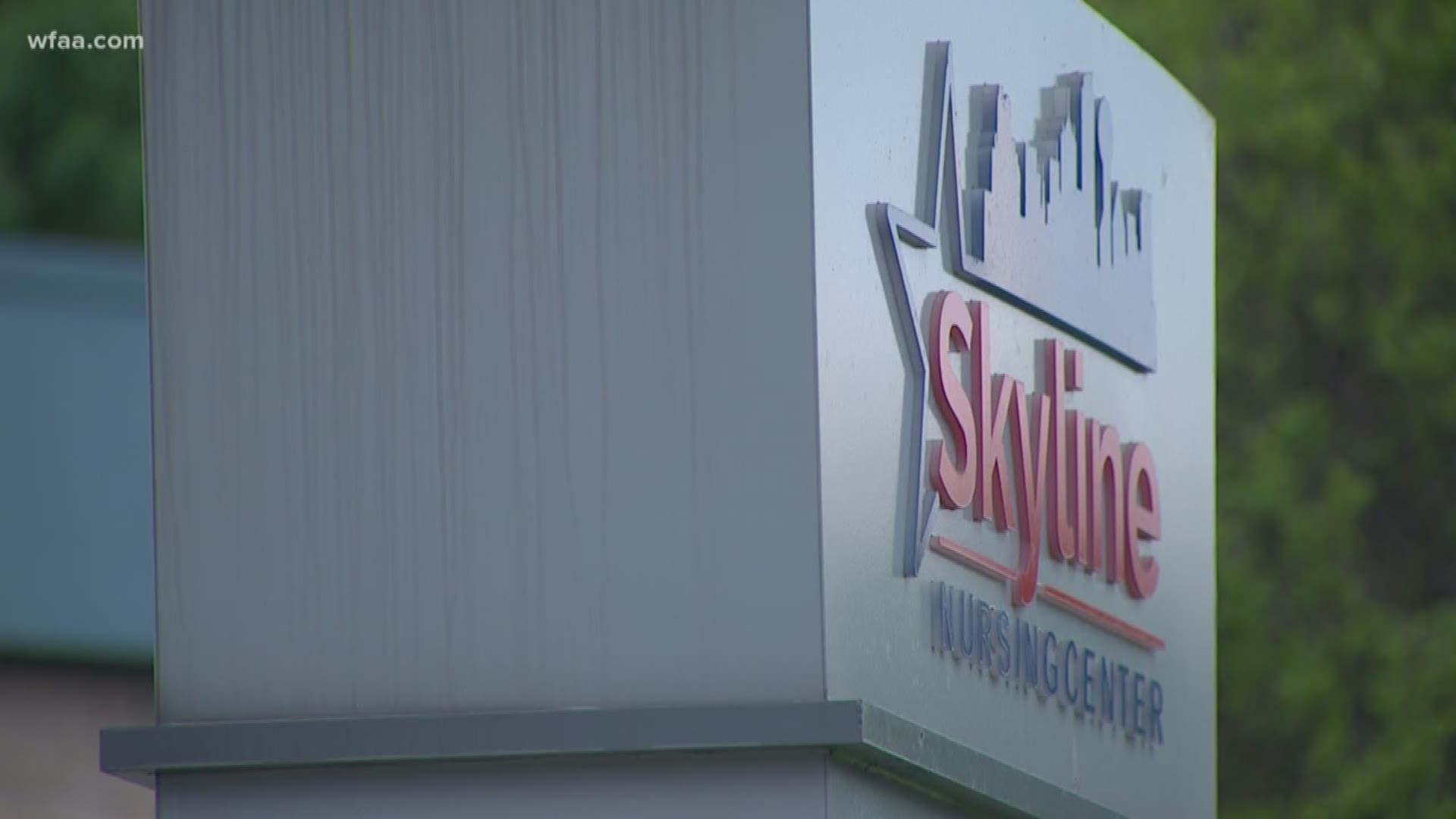As the number of COVID-19 cases soar – particularly among vulnerable residents in nursing homes - families are faced with the difficult decision of whether to remove loved ones from the facilities.
Dallas County Judge Clay Jenkins raised the question after dozens of residents in several Dallas-area facilities recently began testing positive for the virus.
But various authorities told WFAA that such decisions should be thoroughly vetted, with each family having to consider an array of factors.
“It’s a very difficult and at times heartbreaking decision that they are having to make here,” said Suzanna Sulfstede, director of the long-term care ombudsman program for The Senior Source. “If they do end up needing to leave their loved one in the facility, they need to trust that these facilities are doing everything that they can do to protect the residents.”
Sulfstede said each family is unique, with different resources and options.
“For some people, they are in a situation where they are able to take their loved one home and it will be a successful transition for them and that’s wonderful,” Sulfstede said. “But for other families, they are not in that position.”
Below are some questions Sulfstede said families should ask themselves.
What does your home look like?
“If their loved one is in a wheelchair, do they have a ramp where they can get them into their home? Do they need an elevated toilet seat? Is the home equipped for that? And if there were an emergency, such as a fire, would the family be able to get the resident out of the home?"
Are you a capable caregiver?
“What are the needs of that individual, and is the family really equipped to provide the level of care that individual needs?”
Sulfstede said it is important to consider that unlike many family members, the nursing home staff has been trained to provide care.
Do you have other family members available to help you?
“Twenty-four hours a day, seven days a week, providing nursing care for an individual, one person can’t do that,” Sulfstede said. “They’ve got to have additional family members that are willing and ready to providing that level of care as well.”
Can I take them back to the nursing home after all of this?
“Make sure that the facility would be willing to admit their loved one back to the facility when they are ready to return,” Sulfstede said. “And we always encourage family members to get that information in writing from the facility.”
Sulfstede says you should also consider a back-up plan to provide care if your family gets infected.
There are certain facilities in North Texas that have worse COVID-19 infections than others Thus far, the hardest hit are Skyline Nursing Center in Oak Cliff and Brentwood Place One in East Dallas, each with at least 30 cases at their facilities.
Sulfstede said that despite feelings of frustration or even guilt, families need to carefully weigh their options before they move forward.
“Sometimes bringing their loved one home still isn’t going to be the right answer or the right solution for them,” she said.
'Make a choice, but don't feel guilty about the choice'
It is also important to point that not all nursing homes have cases. Right now, there are eight nursing homes with known COVID-19 cases in Dallas County.
Sulfstede said families may reach out to groups like The Senior Source for assistance when faced with nursing home care decisions.
“We are a resource for people in the community trying to select a facility, whether they are moving into one for the first time, or they are not happy where they currently are and they want to move their loved one to a new facility,” Sulfstede said. “I think our role is always important, but I think it’s especially important now because families really can’t get in.”
“It’s a very difficult, at times heartbreaking, decision that they are having to make here,” Sulfstede added.
No matter the decision, Sulfstede said she hopes families attempt to make the best choice at the time.
“If they can’t take their loved one home, that’s OK,” Sulfstede said. “If they have the resources available and can take them home, that’s also OK.”
She said to make a choice, but don’t feel guilty about the choice.
“If you don’t have the adequate resources, I think in some situations I think it is safer to leave them in the facility,” Sulfstede said. “There is still oversight of these facilities by state regulatory agencies.”
“I think people may make snap decisions, and it may be better if they would have taken a step back and evaluated it in order to make the best decision,” she said.
More on WFAA:
- New numbers from Texas governor on COVID-19 cases, medical supplies, hope for small businesses
- California nursing facility with coronavirus patients evacuated after staff no-shows
- Inside a Texas hospital: Local nurse describes COVID-19 unit and treating critical patients
- LIST: These are the positive cases of COVID-19 at area nursing homes and state-supported living centers
- 8 long-term care facilities in Dallas County now have COVID-19 cases; Oak Cliff facility has 30 cases alone

